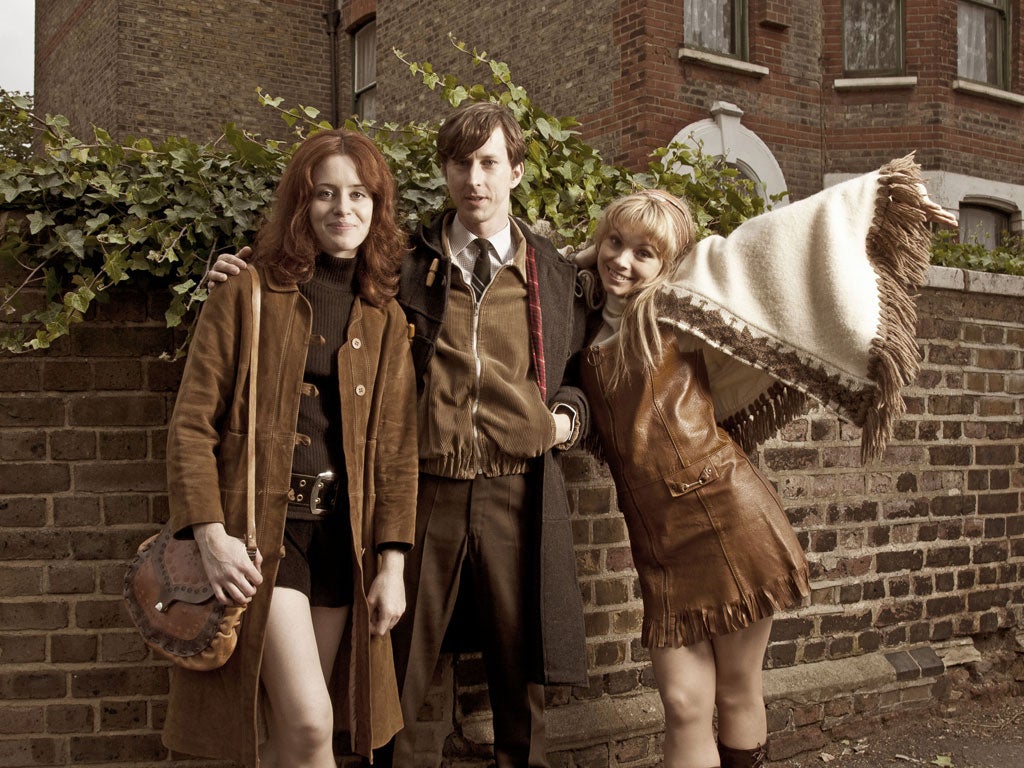White Heat, BBC2, Thursday Free Speech, BBC3, Wednesday
A new drama about a group of housemates in not-quite-swinging London has yet to find itself

'He's picked every one of us to conduct his social experiment," remarked one of the youthful characters in White Heat. Well, quite. Paula Milne's drama serial is following a clutch of friends across five decades as they're buffeted by the late 20th century – and presumably none was wiser than she to the danger that the project might descend into a tableau of historical determinism in fancy dress.
Which, by and large, it didn't in its first episode. It was 1965 and as the characters gathered in the shabby house of Jack (Sam Claflin) to size one another up – by turns, gay, black, northern, suburban London, religious – London was doing its swinging several postcodes away. The action ventured out of doors only occasionally, preferring to focus on the tensions of the group, particularly those provoked by Jack's failed attempt to combine shorthold tenancy and free love. ("No sleeping with the same person for more than three nights.")
Thereafter Milne and director John Alexander tackled the tricky business of turning the generational clash of Sixties yore into drama: the parents delivering their children into apparent independence were shown to be distant, intolerant or just a long way away. And predictably among the students, Lady Chatterley was read, Joan Bakewell watched and reefers smoked. One era was giving way to another, and in case you were dozing on the sofa, the house-warming party was thrown on the day of Winston Churchill's funeral.
But though the reference points were obvious, there was just enough subtlety to encourage patience. Wilson's famous 1963 speech wasn't referred to, and I liked the irony that the only technology on display was none too white-hot: a toaster that Alan (Lee Ingleby) seemed to be repairing for about a week and the tin foil with which Lilly (My Anna Buring) the art student was lining her room. And when you thought the tone and pacing were leaning heavily on the wistful, the drama flashed forward to its framing device: the gathering of the variously estranged flatmates in the present day, legatees of the will of Jack, I suppose, who seems to have died in lonely straits. Roll on 1967.
The problems of the baby-boomers look rather attractive to what you might call the Olympics generation. BBC3 attempted to address their concerns on Wednesday in a new debate show, Free Speech. It comes on like a yoof Question Time, but is broadcast monthly, and comes with the inevitable garnish of online social media. Even David Dimbleby on QT, of course, is required to look at us over his glasses and mumble about hashtags. On Free Speech, the topics are those suggested by visitors to the show's Facebook page; a "power bar" indicated how the panellists were faring with the audience, and some poor comedian read out tweets.
Despite this, it worked. Under presenter Jake Humphrey's control, the proceedings were brisk. With only one party political representative (Tory MP Esther McVey), the give-and-take was – once Adam Deacon had buttoned his lip – engaging and sometimes nuanced on subjects as varied as the workfare debacle, alcohol pricing and Afghanistan. There was even a weirdly pleasing moment when identical twin girls held forth intelligently on the issue of body image. As many tweeted towards the programme's end, an hour wasn't nearly enough.
Join our commenting forum
Join thought-provoking conversations, follow other Independent readers and see their replies
Comments
Bookmark popover
Removed from bookmarks